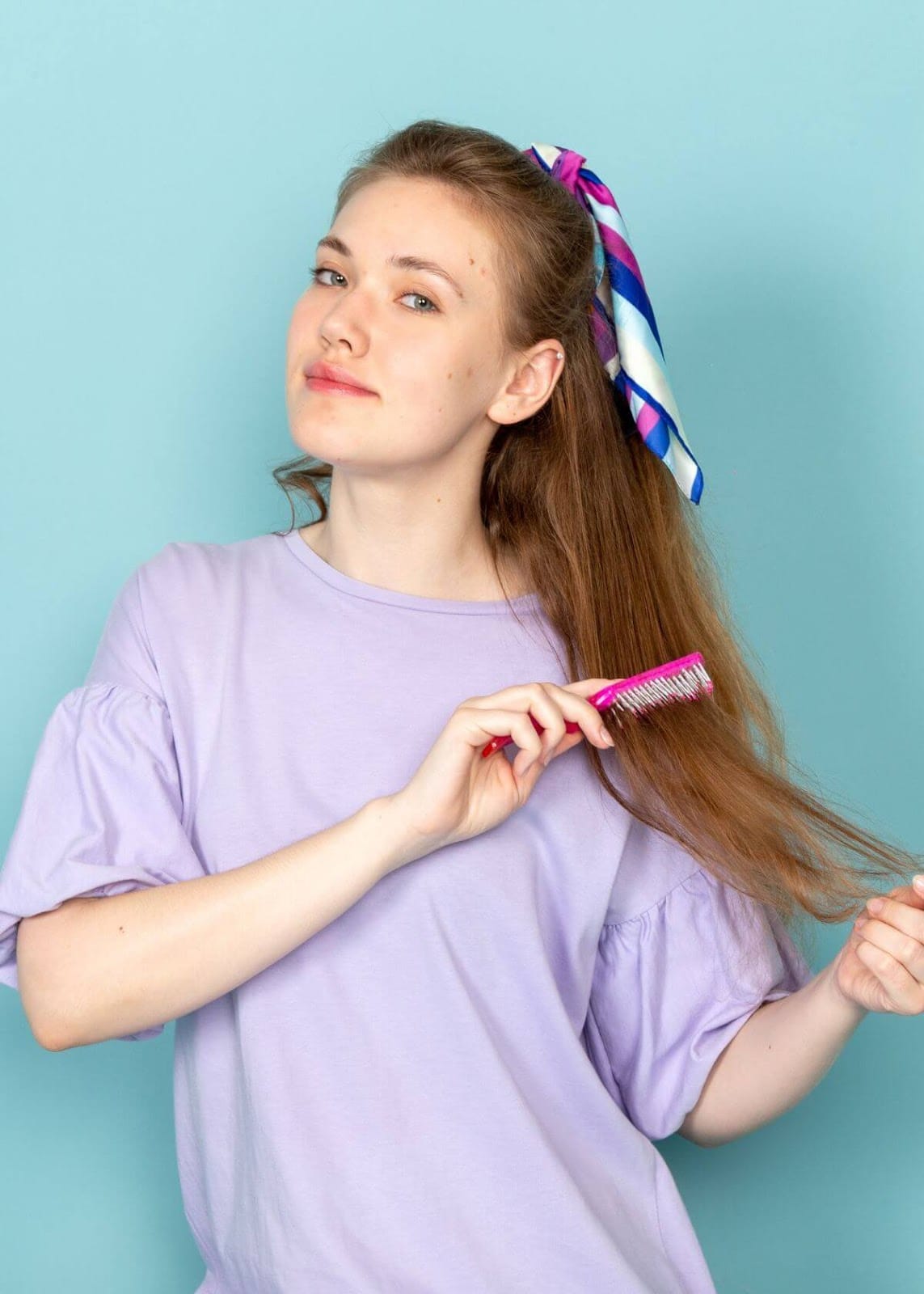If you have frizzy hair, brushing it can be a challenge. It’s important to not only find the right brush but also use the right technique in order to reduce frizz and maintain healthy hair. Here are a few tips to help you choose the best brush for your hair type and style.
Choose the Right Type of Brush
The type of brush you choose will depend on your hair type and desired style. For instance, those with thick, curly, or wavy hair should opt for an oval cushion brush, which is designed to gently detangle and reduce frizz without pulling on the scalp or causing breakage. Round brushes are also great for taming thicker, harder-to-manage hair, as they can help smooth out strands with their wide bristles. On the other hand, those with thin or straight hair should opt for a paddle brush as it has longer bristles that can help detangle strands without pulling or tugging too much.
Use Proper Technique
In addition to choosing the right type of brush, it’s important to use proper technique when brushing frizzy hair. Start by using a wide-tooth comb or fingers to detangle your hair first before using any kind of heat-styling tools such as a blow dryer or curling iron. Once your hair is tangle-free, use your chosen brush in slow downward strokes from root to tip until all knots have been worked out. Remember not to pull too hard on any one section of your hair while brushing, as this can cause breakage and further damage your strands.
Choose Natural Bristles
Finally, it’s best to opt for brushes with natural bristles rather than synthetic ones as natural bristles are gentler on both wet and dry strands. Natural bristles are also better at distributing oils along the length of your hair which helps keep them hydrated and less prone to frizzing up when exposed to humidity or heat styling tools like blow dryers and curling irons. Plus, natural bristles have more grip, which makes them better at creating volume and controlling flyaways!
Choosing the right kind of brush is an important step in maintaining healthy-looking frizzy hair. Make sure you select a brush that suits your particular hair type and desired style while keeping in mind that natural bristle brushes will help reduce frizzing better than synthetic ones due to their ability to distribute oils down each strand more evenly. Lastly, remember that proper technique is just as important as picking out the perfect brush; be gentle yet firm when brushing through knots so that you avoid breakage or damage caused by tugging too hard! With these tips in mind, you should have no problem finding the best brush for your unique needs!
Are you tired of struggling to tame your frizzy hair? If so, we’re here to help! We understand that dealing with unruly hair can be a beauty nightmare. That’s why our team of beauty experts has conducted extensive research to find the best brush for frizzy hair - one that works wonders and gives you the style you desire. Take a look at our findings and click the link to discover your new favorite tool for achieving perfect tresses. Don’t let frizz stand in your way - make an informed choice that will leave your hair looking smooth and beautiful.
How to Brush Your Hair to Reduce Frizz and What Brushes To Avoid
Brushing your hair is an important part of maintaining healthy, manageable locks – but not all brushes are created equal. Using the wrong one can actually make your strands more prone to frizz and tangles. Here are a few tips for brushing your hair in order to reduce frizz:
Use a wide-tooth comb
A wide-tooth comb is the best tool for detangling wet hair, as it will help prevent breakage and reduce extra frizz from tugging too hard at knots. Start from the bottom of your strands and work your way up, taking extra care not to pull too hard.
Use a brush with natural bristles
For daily use, look for a brush with rounded or smooth plastic or natural bristles like boar’s hair. This type of brush will help distribute natural oils throughout your scalp while helping adds shine and protects against split ends.
Avoid nylon bristles
Avoid brushes with nylon bristles as they can cause excess friction which leads to more flyaways! Stick with softer materials that won't tug at or break delicate strands.







